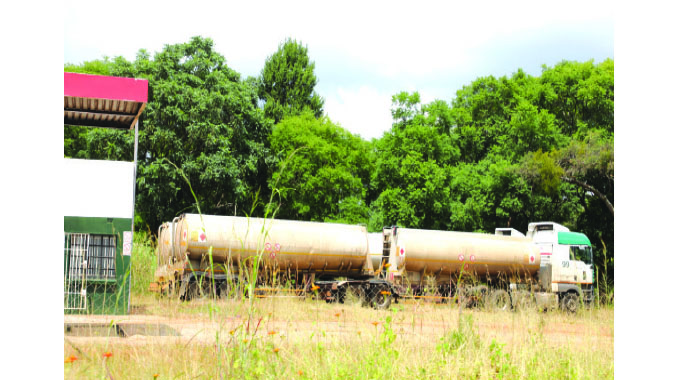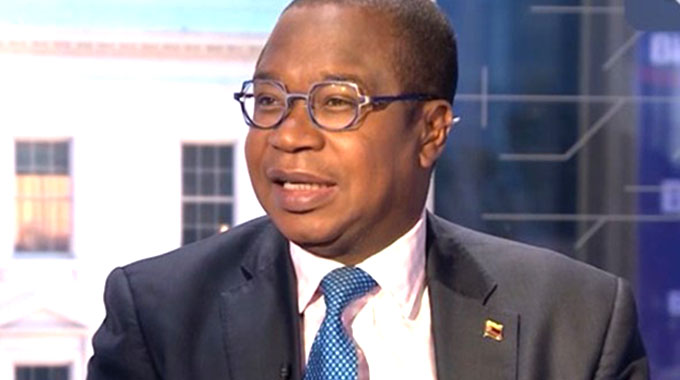‘Dealers still diverting fuel’

Golden Sibanda Senior Business Reporter
Fuel dealers may still be withholding supplies procured with foreign currency allocated by the Reserve Bank of Zimbabwe (RBZ) or from other designated platforms, such as the interbank market, for speculative reasons resulting in widespread shortage on the market, a Cabinet Minister has said.
As such, Government said the industry regulator had been instructed to investigate and take stern measures against the culprits in an effort to improve availability.
Zimbabwe continues to be dogged by acute shortage despite the central bank making weekly allocations of foreign currency to fuel marketers to import fuel for sale on the general local currency market.
The RBZ said earlier, starting this month, it would be publishing on a weekly basis facilities for fuel importation to bridge the information asymmetry, which appeared to feed the rumour mill that importers were not getting adequate forex to ensure adequate fuel supply.
Central bank governor Dr John Mangudya said early this month that Zimbabwe required an average of US$100 million on a monthly basis to import enough diesel and petrol for the whole country.
Major oil-importing entities accessing the funds include the Indigenous Petroleum Association of Zimbabwe (IPAZ), Zuva Petroleum, Puma Energy, Total Zimbabwe, Petrotrade and Engen Petroleum Zimbabwe. IPAZ is the largest importer of fuel.
Energy and Power Development Minister Fortune Chasi, said there was suspicion that some dealers maybe withholding fuel for diversion to non-productive speculative activities outside the national interest, which regulatory authorities have been directed to stamp out.
“As you know there is a lot of misconduct with some people not making that fuel available to the public and keeping it for speculative purposes.
“So ZERA (Zimbabwe Energy Regulator Authority) is doing what it has to do to ensure there is total compliance,” he said.
Pressed on what had been done about players found guilty of misconduct, Minister Chasi said while he did not have specific names of offenders, he was aware a number of fuel dealers had been caught out and slapped with heavy penalties.
He, however, said the energy industry regulator (ZERA) could provide details of who was caught and penalties give.
The minister said he was aware of the situation on the ground.
“I move around particularly in Harare where I stay just monitoring and the queues are quite long and it puts us in an invidious position because we would have made so much effort to bring in fuel that know is adequate for consumption in the country.
“We still see many people in queues and the only explanation is that the fuel that we are arranging for the various players is not actually getting to the consumer and that is very sad and ZERA is working with the ministry to bring the situation under control,” Minister Chasi said.
He added efforts to stem out the mischief by industry players was part of the reason the RBZ is publishing weekly forex allocations to reveal details on “who has been given what”. This he said will help Government at policy level to enforce compliance and dispel misinformation.
However, no comment could be obtained from ZERA managing director Mr Edington Mazambani by the time of going to print yesterday.
Thus far, the central bank has made available US$73,53 million for fuel procurement in March alone, but this has not resulted in corresponding improvement in availability of the commodity on the market, prompting fears there could widespread misconduct by market players.
The amount of hard currency the bank has been making available for fuel imports is sufficient to guarantee delivery of circa 200 million litres per week.
Zimbabwe spends over US$1,2 billion yearly on the importation of petroleum products despite the crippling fuel shortages that the country continues to endure.
The RBZ has been allocating foreign currency to fuel companies for over a decade before Minister of Finance and Economic Development Mthuli Ncube altered and directed them to the interbank platform.
However, due to ineffectiveness of the interbank platform and critical forex shortages in the economy, RBZ continues to supply funds to them.
RBZ has been issuing letters of credit, processed through local banks and guaranteed by the Afreximbank, to ensure imports of the precious commodity.










Comments